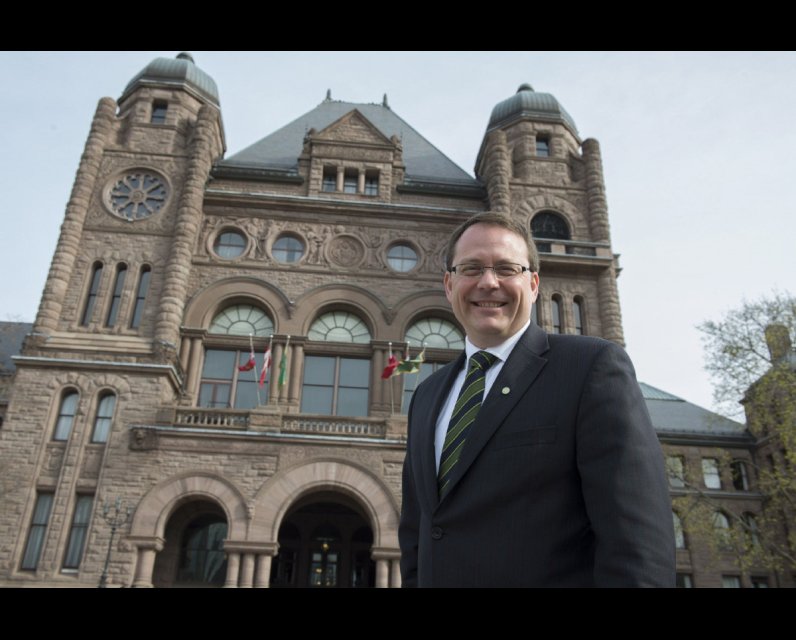Warning message
- Last import of users from Drupal Production environment ran more than 7 days ago. Import users by accessing /admin/config/live-importer/drupal-run
- Last import of nodes from Drupal Production environment ran more than 7 days ago. Import nodes by accessing /admin/config/live-importer/drupal-run
Unpublished Opinions
Rob currently works on Parliament Hill and is on the Daybreak Non-Profit Housing Board of Directors. He writes regularly on his blog #RedHeartBlueSign at www.redheartbluesign.wordpress.com on lifestyle, political and personal topics.
Ontario Greens: Out looking for number 1

I recently wrote about the return of MPPs to Ontario’s Queen’s Park. In that post, left out were Ontario Greens. They don’t have an elected MPP, and have fielded a full slate of candidates since 2007. In the 2007 election, the Greens had good success attracting 8% of the total vote. They have not seen that support since with the party falling to 2.9% in 2011 and 4.8% of the total vote in the last Ontario election.
On the heels of the success of the BC Greens holding the balance of power and working with the BC NDP Party to take Christy Clark out of the Premiers’ office, Ontario Green Party Leader Mike Schreiner is talking about looking for their number 1, their first elected MPP. Schreiner was selected as the Green Party of Ontario (GPO) leader in 2009, 2018 will be his 3rd election as a leader and he is firmly behind the idea of “third time lucky” in considering the possibility of having a Green MPP in the Ontario Legislature.
In an interview with CBC Kitchener-Waterloo earlier this August, Schreiner said that in order for the Greens to ask questions and hold the government to account, it only needs one MPP. Schreiner’s correct it is difficult to ask the Premier a question from the lobby out side the legislative chambers in Toronto. The Premier has no obligation to answer.
I sat down with Ontario Green candidate James O’Grady, he’s running in the riding of Nepean and asked him about the party and what it means to be an Ontario Green. To know this James went back in time to understand the Green Movement. The worldwide green movement includes nearly 100 parties and associate member parties. The Green Party of Canada is one of the member parties and while the GPO is not listed as a member party of the worldwide green movement, Article 3 of its Constitution states …The Green Party of Ontario affiliates with and supports the core values of the worldwide Green Movement…
Back to who is the GPO and what is the worldwide Green movement. As explained to me, it is a values based movement, policies that come from the Green Party respect its guiding values, if you want to put it that way. The GPO shares the values of the Green worldwide movement of: Ecological Wisdom; Social Justice; Participatory Democracy; Non-Violence; Sustainability and Respect for Diversity. With these values in mind, people ask, are Greens, Conservative or Liberal? Greens are both, progressive in social justice, and diversity while they also believe in balanced budgets and allowing communities to have greater control.
Can there be a breakthrough for the Greens in Ontario? O’Grady discusses the breakthrough of the Ontario Greens in the same manner of the Farmers Party from last century which led to progressive reforms, the CCF and the New Democratic Party. For Schreiner and other Ontario Greens they point to Guelph as the riding where they will elect their first MPP. The riding is held by Liberal Minister Liz Sandals, she won with 41% of the vote in 2014. But look at 2nd, 3rd and 4th in the riding, it was almost an equal spilt of the other 59% of the vote. The hope of winning in Guelph lies in the sub results of that election. The Greens trailed the runner up PCPO candidate by only 818 votes. Of the four main parties, the Greens were the only party to increase voter support from 2011 results. Schreiner increased the Green vote by more than 12%, that gain came exclusively from the Liberal, PC and NDP candidate loses of -1%, -5% and -6%.
With support for the Ontario Liberal government at an all time low, Schreiner sees votes coming his way from all the other parties including from Liberal supporters. Sandals, who has not said whether she is going to run in 2018,has been the MPP since 2003, she earns support more for being a ‘legacy’ candidate rather being Liberal. What happens to liberal vote with a new candidate? Will the Liberals lose the environmental vote because of failed policies like Cap and Trade and the disastrous Green Energy Program?
O’Grady calls the difference between the themes of the 2014 vs the upcoming 2018 election as being “business vs people”. He compares the Green party politically as being the 21st century 'flat approach' which is collaborartive and empowering and the others as taking a 20th century ‘hierarchal approach’. The GPO have not announced when their policy convention will be held. But it is easy to see where the Greens will go. Carbon pricing is on the table, but maybe temporary until 50% +1 of Ontarians are net positive with their carbon footprint? The Liberal Cap and Trade is not the way you’ll see Schreiner head on carbon pricing. The Greens have indicated their preference is a price on carbon with dividends going to Ontarians, and not businesses (as Cap and Trade does). They also have other economic policies almost make the greens look blue.
The difference that Schreiner hopes will sway votes his way and to O’Grady in Nepean; along with the other 123 Green candidates in Ontario are the values of the party. The six values are clear, understandable and are progressive and conservative enough at the same time to attract votes from all sides, as results in Guelph in the last election indicate. It will all be dependant on how the party communicates their values.
For the Schreiner and the Green Party of Ontario, its value system and words like “local”, “Sustainability = happiness” and getting people thinking about “doing good” are going to have to be its selling points.
Do these reflect something different for Guelph and Ontario voters to consider? We’ll have to wait less than 300 days to find out.



Comments
Be the first to comment